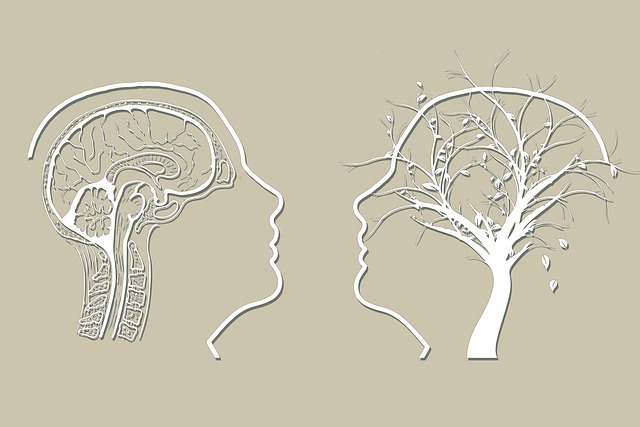In Castle Rock, couples facing communication problems find relief through specialized Castle Rock Couples Communication Issues Therapy. This approach focuses on emotional intelligence (EQ) development using strategies like Mindfulness Meditation, Social Skills Training, and Trauma Support Services. By recognizing and managing emotions, partners gain tools for conflict resolution, empathy, and improved listening skills, leading to deeper connections and overall well-being.
Emotional intelligence (EI) is a cornerstone of healthy relationships, fostering understanding and empathy among partners. This article guides you through the process of building EI, starting with identifying and managing emotions—a crucial aspect of therapy. We explore effective communication strategies tailored for couples, aiming to bridge gaps in Castle Rock couples communication issues. By understanding and overcoming these challenges through therapy, partnerships can flourish, leading to a stronger, more connected union.
- Understanding Emotional Intelligence: The Foundation of Healthy Relationships
- Identifying and Managing Emotions: A Key Step in Therapy
- Effective Communication Strategies for Couples: Building Bridges
- Overcoming Challenges: Castle Rock Couples Communication Issues and Their Solutions
Understanding Emotional Intelligence: The Foundation of Healthy Relationships

Emotional intelligence (EQ) is the cornerstone of healthy relationships, encompassing the ability to recognize and manage one’s own emotions, as well as understand and empathize with others’ feelings. For couples in Castle Rock seeking therapy for communication issues, building EQ can significantly enhance their bond. It enables partners to navigate conflicts with compassion, fostering an environment where both individuals feel heard, respected, and valued.
By engaging in Mindfulness Meditation and Social Skills Training, couples can improve their emotional awareness and responsiveness. Trauma Support Services also play a crucial role, helping partners process past experiences that may impact their current relationships. Through these strategies, Castle Rock couples can strengthen their communication, resolve conflicts more effectively, and create a deeper connection based on mutual understanding and empathy.
Identifying and Managing Emotions: A Key Step in Therapy

Identifying and managing emotions is a fundamental aspect of therapy, serving as a cornerstone for emotional intelligence building. In Castle Rock couples communication issues therapy, this process often begins with helping individuals recognize their feelings and those of others. Through effective listening and self-awareness exercises, therapists guide clients to understand the nuances of their emotions, fostering healthier expressions and reactions. This step is crucial in resolving conflicts and improving relationships, as it enables partners to navigate sensitive topics with empathy and open communication.
Social Skills Training plays a significant role in this journey by teaching individuals how to interpret non-verbal cues, practice active listening, and respond constructively during emotional conversations. Mental Health Education Programs Design can also be tailored to help clients recognize early signs of depression prevention, promoting resilience and proactive mental health management. By integrating these strategies, Castle Rock couples therapy offers a comprehensive approach to building emotional intelligence, ultimately enhancing relationships and overall well-being.
Effective Communication Strategies for Couples: Building Bridges

Effective communication is a cornerstone for any healthy relationship, and Castle Rock couples communication issues therapy can be a game-changer. When partners struggle to express their emotions or understand each other, it creates a chasm that can isolate and frustrate both individuals. Building bridges through positive thinking and compassion cultivation practices helps to heal these rifts.
By applying mind over matter principles, couples can transform their interactions from contentious battles to meaningful dialogues. This involves active listening—a powerful tool where partners take turns speaking without interruption, allowing for a deeper understanding of each other’s perspectives. Encouraging empathy and emotional validation fosters an environment of safety and trust, enabling open conversations about even the most sensitive topics.
Overcoming Challenges: Castle Rock Couples Communication Issues and Their Solutions

In Castle Rock, couples often encounter communication issues that can pose significant challenges to their relationships. These obstacles may stem from differences in personalities, past experiences, or even unaddressed emotional traumas. Overcoming such difficulties requires a concerted effort and, in many cases, professional guidance from therapists specialized in relationship counseling. Therapy serves as a safe space for couples to explore these barriers openly, fostering better understanding and empathy.
One common aspect of Castle Rock Couples Communication Issues therapy involves enhancing self-esteem and improving emotional expression. By providing a platform for individuals to share their feelings without judgment, therapists help partners build stronger connections. Additionally, healthcare provider cultural competency training can play a crucial role in addressing diverse perspectives, ensuring that the therapeutic process is inclusive and effective. This holistic approach not only aids in resolving immediate communication problems but also promotes anxiety relief and overall well-being for both individuals involved.
Emotional intelligence is a cornerstone of healthy relationships, as highlighted throughout this article. By understanding and managing emotions effectively, couples in Castle Rock can navigate communication challenges with greater ease. The strategies discussed, including identifying emotional triggers, adopting active listening techniques, and implementing constructive conflict resolution methods, offer valuable tools for therapy and beyond. Embracing these principles enables couples to build stronger bonds, foster mutual understanding, and create a more harmonious future together.














